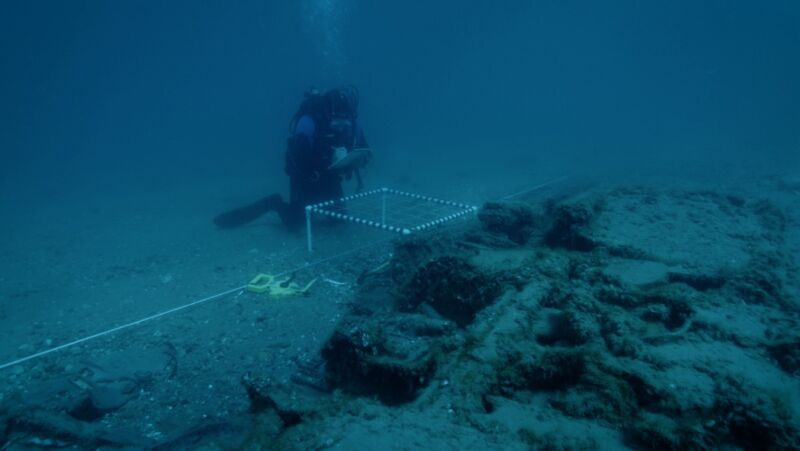NatGeo documents salvage of Tuskegee Airman’s lost WWII plane wreckage

Enlarge / Michigan's State Maritime Archaeologist Wayne R. Lusardi takes notes underwater at the Lake Huron WWII wreckage of 2nd Lt. Frank Moody's P-39 Airacobra. Moody, one of the famed Tuskagee Airmen, fatally crashed in 1944. (credit: National Geographic)
In April 1944, a pilot with the Tuskegee Airmen, Second Lieutenant Frank Moody, was on a routine training mission when his plane malfunctioned. Moody lost control of the aircraft and plunged to his death in the chilly waters of Lake Huron. His body was recovered two months later, but the airplane was left at the bottom of the lake-until now. Over the last few years, a team of divers working with the Tuskegee Airmen National Historical Museum in Detroit has been diligently recovering the various parts of Moody's plane to determine what caused the pilot's fatal crash.
That painstaking process is the centerpiece of The Real Red Tails, a new documentary from National Geographic narrated by Sheryl Lee Ralph (Abbot Elementary). The documentary features interviews with the underwater archaeologists working to recover the plane, as well as firsthand accounts from Moody's fellow airmen and stunning underwater footage from the wreck itself.
The Tuskegee Airmen were the first Black military pilots in the US Armed Forces and helped pave the way for the desegregation of the military. The men painted the tails of their P-47 planes red, earning them the nickname the Red Tails. (They initially flew Bell P-39 Airacobras like Moody's downed plane, and later flew P-51 Mustangs.) It was then-First Lady Eleanor Roosevelt who helped tip popular opinion in favor of the fledgling unit when she flew with the Airmen's chief instructor, C. Alfred Anderson, in March 1941. The Airmen earned praise for their skill and bravery in combat during World War II, with members being awarded three Distinguished Unit Citations, 96 Distinguished Flying Crosses, 14 Bronze Stars, 60 Purple Hearts, and at least one Silver Star.